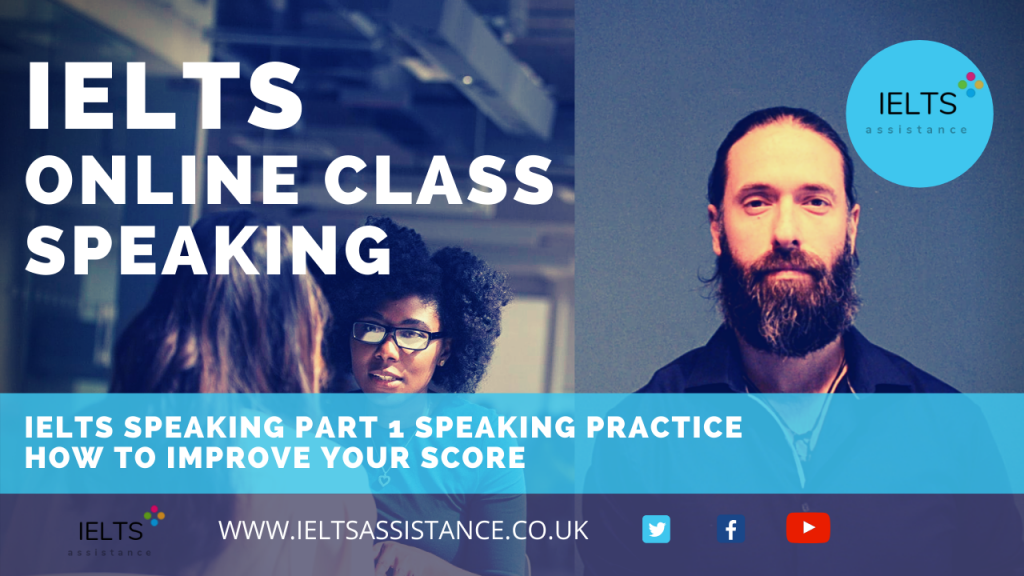IELTS Skills
Brainstorming
What is brainstorming
Brainstorming is a technique to generate ideas, to think about possible solutions to a problem or to find ideas to write about.
Why brainstorm
You need brainstorming in IELTS to generate ideas for General IELTS writing Task 1 and IELTS Writing Task 2. You also need to generate some ideas when you do the long turn, IELTS Speaking Part 2.
General IELTS Writing Task 1
You need to write an email to someone, the outline has been given to you but you will still need to fill the content, which means you will need to generate some ideas.
For example:
You travelled by a long distance bus recently and your suitcase was damaged.
Write a letter to the bus company. In your letter:
- Inform the bus company of when and to where you travelled.
- Describe your suitcase and what happened to it.
- Explain why the company should pay for a new suitcase.
Write at least 150 words.
You do NOT need to write any address.
In this email you will need to generate some ideas about:
- When and where you travelled.
- What your suitcase looks like
- How did your suitcase get damaged?
- Reasons why the company should pay you a new suitcase.
Practice Brainstorming General IELTS Writing Task 1
IELTS Writing Task 2
Here you need to write an Academic essay on a provided topic, which means you will have to defend your Thesis Statement. For this, you will have to generate some claims to support your Thesis Statement, as well as some supporting evidence and or examples for your claims.
For example:
The mass media, including television, radio, and newspapers, have great influence in shaping people’s ideas. To what extent do you agree or disagree?
Give reasons and relevant examples to support your answer.
You should write at least 250 words.
Here you will have to pick a side, this side will be your Thesis Statement.
- I think that media have great influence in shaping people’s ideas
- I think that the media don’t have great influence in shaping people’s ideas.
So here you will need to generate ideas, which will be your claims to support 1 of these thesis statements. You only need to generate ideas for one of them, still, if you have issues generating ideas for one side, and only can think about ideas for the other side then change sides. In the end, it is more important to write 250 words or more about the topic, rather than really defending your personal viewpoint, but not being able to write more than 200 words.
Practice Brainstorming IELTS Writing Task 2
IELTS Speaking Part 2
Here you need to talk for 2 minutes about a given topic and you have 1 minute to prepare yourself.
For example:
Describe one of your childhood memories.
You should say:
- what it is
- when it happened
- how it affected you in your life
and explain why you still remember it.
You won’t have to generate so many ideas, as you need to talk about something you have experienced, you just have to remember it. If you don’t remember anything, then you will have to make up a story and there you will have to brainstorm ideas for:
- Which memory you want to talk about
- When it happened?
- How it affected you?
- Why you still remember this memory?
The most important part is not to waste too much time on generating ideas, but generating some good language you are going to use, in turn improving your lexical range.
Practice Brainstorming IELTS Speaking Part 2
How to brainstorm
There are different ways of brainstorming and in the end, it doesn’t really matter how you do it but:
- You need to be able to generate ideas fast: 1 to 2 minutes of time
- You need to generate multiple ideas: at least 2 supporting claims for your thesis statement; multiple ideas to help you fill in your email; possible ideas or language use for your speaking.
- You need to generate good ideas: You need to be able to write 2 full paragraph of at least 100 words for your essay; have enough information to fill 3 paragraphs in your email; some great ideas and language to help you speak for 2 minutes.
Since you are alone you won’t be able to ask other people from your group to help you generate some ideas where you can build upon. You will have to do it all yourself. So, here are some of the techniques you can use:
No brainstorming
This is the best technique for this is not having to brainstorm that much, but already having some ideas what to write about. This is the easiest and can be done before you start your IELTS test. Now how can I do this? Very simple, have a look at all the examples online of people answering General Writing Task 1, Writing task 2, Speaking Part 2. Look at the different Tasks and see how people answered those questions. When reading decide if they are some valid ideas or not, then maybe think about some other ideas. You can also write these ideas down in a notebook and review them from time to time. That way you will have plenty of ideas to use once the exam starts.
Pros:
You won’t have to do much brainstorming as you already know what you will write about and save a lot of time during the actual test.
You can take as much time to look at all the ideas before the exam.
Cons:
You might have a question which you didn’t look at before the exam and you still have to brainstorm.
You might not fully and carefully read the question and think of a similar, but different question you had seen before. This means you will use ideas which are not suitable for the task and you Task Achievement will drop.
You might not have a lot of time before the actual test and can’t read many of the questions and answers.
Generating words
This takes some time, and you do not always have the time to use this. You write down all the words you can think of when brainstorming. These words will help you later when generating more ideas or selecting the good ideas. You don’t have to do it in any order, just write what comes to you. You don’t need to write full sentences, but you can write short phrases. Remember this is idea generation, the examiner will not see your ideas and will not correct it or judge it, so don’t worry about grammar, vocab and spelling.
Pros:
Appeals to people who are a bit more disorganized.
You generate a lot of ideas as it is not structured and you can let all your ideas flow.
Cons:
You might generate too many ideas which you do not need
You might spend too much time on generating ideas
Pros and Cons table
You draw a small table with 2 columns, one with the advantedge or pros, and the other with the disadvantages or cons. In each column you write down some ideas that come to mind which you can later select.
Pros:
Appeals to people who are methodical and like structure.
it’s a good way to generate ideas, as thinking about opposites might help you generate more ideas.
It will really show you quickly where you have more ideas, which means you might need to change your Thesis Statement according to your ideas and not start with a Thesis Statement from the beginning.
Cons:
You do not always need the opposite side, you might just need to write about the advantages alone. This means you are generating ideas, which you won’t use in the end
You might waste valuable time generating ideas you won’t need.
Some people generate too many ideas and can’t decide. In the end you only need 2 great ideas to support your Thesis Statement.
Mindmap
This works well for visual people. You put the keywords/central idea(s) in the centre and branch out and write down some of your ideas on the branches.
Pros:
It appeals to visual people.
It provides a nice structure to work with.
Once you practice it a few times it’s an easy and fast way to generate ideas
Cons:
Not everyone is visual and likes to draw and use boxes to generate ideas
Some people spend too much time making the most amazing mind maps with multiple colors, small drawings, special designs and not have enough time left to actually write.
Asking Questions
This is a good method for people who are logical and enjoy structure. You just start asking yourself questions. Who?What?Why?Where?When?How?How long? How much?….
Pros:
Appeals to logically structured minds.
It generates multiple ideas.
Cons:
You might lose time finding answers to some of the questions which won’t be useful in the end.
You might generate too many ideas which you do not need.
You might spend too much time on generating ideas.
Friendly discussion
This is a good method to get rid of some of the pressure during the exam. Imagine you are having an afternoon coffee/tea with one of your friends, or if you want it, even more, relaxed a pint at your local pub after a hard day’s work. You are sitting there and one of your friends ask you this question from the exam. How would you answer it and talk to your friend about it? This will make you feel more relaxed and generate some ideas you are comfortable with. You only need to make these ideas more academic once you start planning and writing.
Pros:
It makes you feel more relaxed and will reduce some of the stress during the exam.
It will generate ideas you can really use for writing and speaking.
It will generate ideas where you really stand behind.
Cons:
You might have difficulty transforming these ideas into more academic ideas for writing.
You might not have academic supporting evidence and rather some funny/personal anecdotes.
Now you should have an excellent idea of how to do your brainstorming. As I said before, just see what works best for you. Try some of the techniques out and see and maybe combine some of them together. Just remember, you do not need to generate too many ideas, they need to be useful and you should not waste too much time on it.
Get your writing and speaking corrected
Join the ever growing group of students who we helped on the road to success and get the professional help you have been looking for.


